11 Ways to Detox Your Liver

Your liver is responsible for over 500 different functions in the body (1). It plays a role in blood clotting, produces cholesterol, stores important vitamins, and makes bile which is an essential component of your digestive system. Your liver also works around the clock to eliminate toxins.
This is especially important now because toxins are more pervasive than ever. They’re in your food, the air you breathe, personal care products, drinking water, and even household furniture.
After exposure, toxins enter your bloodstream. From here, it’s your liver’s job to detoxify these chemicals before they cause too much harm. The liver has the incredible ability to identify toxins and ship them out of the body. But the liver can only process so many toxins in a given moment.
When your liver reaches its limit, toxins enter the bloodstream unchecked, store in your fat and tissues, and continually exert their damaging effects.
Given that there are upwards of 80,000 chemicals we can be exposed to, our livers are under constant stress. This is why it’s crucial to support your liver’s detoxification efforts so that it can work to prevent toxin buildup. Here are 11 natural ways to detox your liver.

1. Avoid Pesticides
Opting for organic food is a great way to give your body healthy nutrients, and reduce your exposure to harmful pesticides including glyphosate (2). Recent studies have found that glyphosate cripples an enzyme called cytochrome P450—an essential component of your liver’s detoxification efforts (3). By reducing your exposure to glyphosate, you could improve the rate at which your liver is able to process toxins.
2. Eat Plant-Based Antioxidants
When the liver chemically changes a toxin during the detoxification process, it can produce free radicals (4). Free radicals are unstable atoms that can cause substantial harm to any cell they touch. This is where antioxidants come into play. Antioxidants neutralize free radicals and prevent them from causing damage. Eating organic fruits, veggies and herbs is best way to boost your antioxidant intake.
Additionally, vitamin B6, magnesium, and selenium are shown to increase glutathione production—your body’s most powerful natural antioxidant (4). If you have trouble eating enough veggies, an organic green juice powder is a great option to give your body what it needs.
3. Detox with Nanosized Zeolite
Zeolite is a natural volcanic mineral that has a unique property. When sized correctly, it is attracted to toxins like a magnet. When zeolite comes into contact with a toxin, it traps them in a crystalline “cage.” Once trapped, zeolite helps transport the toxins out of the body.
As such, taking zeolite can be a detoxification gamechanger. By trapping toxins, zeolite takes some of the burden off of your liver. In turn, this allows your liver to detoxify other toxins that it may not have had the capacity to do so in the past. Just make sure you only purchase a liquid nanosized zeolite supplement, otherwise it won’t reach toxins throughout the body.
4. Eat Greens for Healthy Methylation
With some toxins, your liver uses a process called methylation to make them dissolve in water (5). This allows you to excrete the toxins through your urine. Poor dietary choices, smoking, or a lack of vitamin B12 and folate can decrease the amount of methylation that is possible (6).
Additionally, an estimated 20 percent of people have specific genes that make them poor methylators (7). Support healthy methylation by upping your intake of organic leafy greens.
5. Take an Alcohol Break
While moderate red wine intake is associated with health benefits thanks to the antioxidant resveratrol found in grapes, alcohol is still a toxin that your liver has to process and clear from your system (8, 9). Lighten the load on your liver by eliminating or cutting back on alcohol consumption. Consider doing a “dry” month or more to help restore your liver to peak functionality.
6. Eat Cruciferous Vegetables
Cruciferous veggies such as broccoli and cauliflower contain a sulfur-based compound called sulforaphane which supports the liver in two critical ways. First, sulforaphane is a powerful antioxidant, which can protect the liver from free radicals produced as you detox (10). Second, sulforaphane stimulates phase II detoxification in the liver (11).
7. Cut Back on Sugar
While everyone knows that too much sugar can lead to weight gain, what’s less known is the impact sugar has on your liver. Studies have demonstrated that excess sugar can contribute to non-alcohol related fatty liver disease (NAFLD). Shockingly, an estimated 31% of American adults suffer from NAFLD, most unknowingly (12).
One of the issues is that unlike other sugars, fructose (found in high fructose corn syrup) is processed in the liver. Excess fructose gets converted into triglycerides, leading to excess fat in the liver. Cutting back on sugar can relieve this issue and help your liver regenerate.
8. Eat More Fiber
Eating fiber-rich fruits and veggies helps ensure toxins in your body end up where they belong… in the toilet. Many of the toxins you get exposed to are from your diet. When you have enough fiber in your diet, it acts like a sponge and soaks up toxins that are in your digestive tract (13). Fiber also helps to slow down the release of sugar, making it a double win for your liver.
9. Break a Sweat
Your body uses sweat to pull toxins out of your body, making it a highly effective detoxification strategy. Studies have found that your body can eliminate lead, arsenic, cadmium, and mercury through sweat (14). Getting rid of toxins this way can help reduce your toxic burden and take some of the stress off your liver. If you’re new to exercise, start slow before working your way to more high-intensity programs.
10. Drink More Water
Hydration is perhaps the easiest detoxification strategy to overlook. But that doesn’t make it any less important. Your kidneys eliminate a wide variety of wastes and toxins via the urine. As such, the elimination of toxins is highly dependent on your hydration status (15). Without enough water, the filtration rate of your kidneys slows down which means fewer toxins will be excreted and more toxins will remain in your body.
11. Take Milk Thistle
Research suggests that milk thistle protects the liver from damage and reduces liver inflammation (16, 17). This is helpful because liver inflammation or damage can hinder its detoxification capacity. This could be particularly helpful if you drink alcohol, are overweight, or have blood sugar issues.

